Filed in
Jobs
 Subscribe
Subscribe to Decision Science News by Email (one email per week, easy unsubscribe)
IN THE CITY OF NEW YORK

Decision Science News started at Columbia University. In fact, it was a postdoc at the Center for the Decision Sciences (position 2) below. Maybe you can get one of these jobs and become a decision science blog too?
POSTING 1:
Rank Tenured Associate or Full Professor Position at Columbia University, Department of Psychology
Columbia University Department of Psychology invites applications for a position at the rank tenured associate or full professor to begin July 1, 2018. While applicants in other areas of research will be considered, we are especially interested in individuals with expertise in cognitive science whose research focuses on the psychological and brain bases of decision-making.
Responsibilities include undergraduate and graduate teaching and the development of a vigorous research program. Moreover, we seek applicants who are interested in taking a leadership role in the department and in this program area as we maintain the excellence of a strong decision-making program through the department and University.
For more information about the Department of Psychology please visit: https://psychology.columbia.edu. Please note that all applications must be submitted through the online application site:
academicjobs.columbia.edu/applicants/Central?quickFind=64061.
Review of applications will begin on March 15, 2017 and will continue until the position is filled.
Columbia University is an Equal Opportunity/Affirmative Action employer. The University is especially interested in qualified candidates whose record of achievement will contribute to the diversity goals of the institution.
POSTING 2:
Post-Doctoral Researcher, Center for Decision Sciences, Columbia University
The Center for Decision Sciences (CDS), is seeking an outstanding researcher for a Post-Doctoral Researcher position starting in the Fall of 2017, or later. CDS is an interdisciplinary center that facilitates research and understanding on consumer behavior, the implications of decision making on public policy, and the neurological underpinnings of judgment and decision making. This appointment will be in Columbia’s Graduate School of Business.
The post-doctoral researcher will report to the center’s Director Eric J. Johnson, and will collaborate with other center researchers, post-docs, and graduate students across disciplines. The post-doc will assist in planning and carrying out web-based surveys, lab research, and field studies, and analyzing general patterns of responses as well as individual and cultural differences. S/He we will be expected to employ a combination of approaches, from the identification and analysis of existing real-world data sets arising as the result of natural experiments, to the design and analysis of field or lab intervention studies that collect process and outcome measures related to decision making in various domains. We are particularly interested in candidates with computational modeling and strong statistical skills.
Other duties include contribution to other ongoing center projects, preparation of and participation in CDS workshops, and drafting reports and papers for publication.
*Required qualifications*:
* Ph.D. in psychology (cognitive, social, or other relevant subdisciplines), consumer behavior, behavioral economics, decision sciences, or another relevant discipline.
* Familiarity with normative and descriptive theories of decision making.
* Skilled in the use of laboratory-based experiments.
* Data analysis and modeling skills using statistical software packages
(preferably R) and econometrics.
* Proficiency in web-based computer programming (online experimentation
and surveys).
*Desired qualifications*:
* Publications
* Experience working as a member of interdisciplinary teams.
* Some familiarity with econometrics and modeling.
* Proficiency in use of process tracing software (e.g., MouseLab/Web and/or eye-movement packages).
*Duration*: This is a one-year position with the possibility of renewal for a second year conditional on performance.
Please submit applications electronically to Brian Huh at brian@decisionsciences.columbia.edu
*Application Materials*:
– Cover letter
– CV
– 2 publications or writing samples
– 2 recommendation letters (to be submitted directly by references)
Columbia University is an equal opportunity/affirmative action — Disability/Veterans employer.
Filed in
Conferences
 Subscribe
Subscribe to Decision Science News by Email (one email per week, easy unsubscribe)
DEADLINE MARCH 3, 2017

We are pleased to announce Advances in Decision Analysis 2017, a conference organized by the Decision Analysis Society. This conference-the second of its kind-will be held June 26-27, 2017 at The University of Texas at Austin in Austin, Texas.
The conference aims to develop and promote work fit for the Decision Analysis areas in Management Science and Operations Research and the Decision Analysis journal. The conference will provide a platform for interdisciplinary discussions and will include talks by researchers in statistics, economics, psychology, and other decision-making related disciplines with a prescriptive focus.
We are also pleased to announce that Professor Jim Dyer of the McCombs School of Business at The University of Texas at Austin will offer the opening plenary. A second plenary talk will be given by Bill Klimack of Chevron.
Details on abstract submission and registration are available on the conference site. (See the links on the lower left of the page.)
We hope you will join us at the Advances in Decision Analysis 2017 Conference to enjoy the research talks and take in the sights of Austin TX!
General Chair: Casey Lichtendahl (University of Virginia).
Local Chair: John Butler (UT-Austin).
Steering Committee: Bob Winkler (Duke University), Detlof Von Winterfeldt (University of Southern California), Manel Baucells (University of Virginia), and Ali Abbas (University of Southern California).
Organizing Committee: General and Local Chairs, Eric Bickel (UT-Austin), Jason Merrick (VCU), Joe Hahn (UT-Austin), and Yael Grushka-Cockayne (University of Virginia).
For questions: please contact Casey Lichtendahl (lichtendahlc at darden.virginia.edu) or John Butler (John.Butler2 at mccombs.utexas.edu).
Submitting Conference Abstracts
We are now accepting abstracts focusing on statistics, economics, psychology, and other decision-making related disciplines with a prescriptive focus. Submissions will undergo a peer-review process. Those not selected for presentation may be invited to present a poster.
* Submission deadline: Monday, March 3, 2017
* Notification of acceptance: March 26, 2017
* Please submit in PDF format both a short abstract (not to exceed 200 characters) and a one-page extended abstract (about 500 words). If you choose, you can upload a full paper in PDF format, instead of the one-page abstract, but this is not required.
* You are permitted only one abstract as a presenting author (speaker)
* You can be a co-author on other abstracts.
* As the presenting author, you are expected to present the work at the conference.
Submit Your Abstract Online (link)
Register for the Conference (link)
Note: all attendees must register and pay the registration fee. Early registration deadline is 6/2/2017.
Venue and Hotels
The conference will be held in the UT Alumni Center at 2110 San Jacinto Blvd, Austin, TX 78712. See https://www.etterharbinalumnicenter.com/. The two closest hotels are
AT&T Executive Education and Conference Center (0.5 miles)
1900 University Ave, Austin, TX 78705
Hampton Inn & Suites (0.7 miles)
1701 Lavaca St, Austin, TX 78701
Filed in
Conferences
 Subscribe
Subscribe to Decision Science News by Email (one email per week, easy unsubscribe)
APPLICATION DEADLINE 12 MARCH 2017
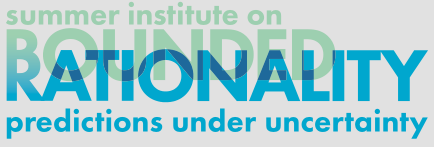
We are delighted to announce that the 2017 Summer Institute on Bounded Rationality will take place on June 06–14th, 2017, at the Max Planck Institute for Human Development in Berlin, Germany.
The Summer Institute brings together talented young researchers and renowned scientists from around the globe and aims to spark a dialogue on human decision making.
It offers a forum for young scholars from various disciplines to share their approaches, discuss their research, and be inspired.
The program will cover the fundamentals, methodology, and recent findings on bounded rationality. This year’s Summer Institute focuses on how and why simple models of bounded rationality make accurate predictions in an uncertain world.
On behalf of the directors of the Summer Institute, Gerd Gigerenzer and Ralph Hertwig, we invite young decision-making scholars from all fields to apply. Participation will be free, accommodation will be provided, and travel expenses will be partly reimbursed.
Applications are open until March 12, 2017.
Apply here: bit.ly/SI2017_apply
Please feel free to email any questions you might have to si2017 at mpib-berlin.mpg.de
To pass on this call for applications, you can find a pdf-version here: bit.ly/SI2017_cfa
Filed in
Conferences
 Subscribe
Subscribe to Decision Science News by Email (one email per week, easy unsubscribe)
COMPETITION PROPOSALS: 2017 NEURAL INFORMATION PROCESSING SYSTEMS 2017 CONFERENCE
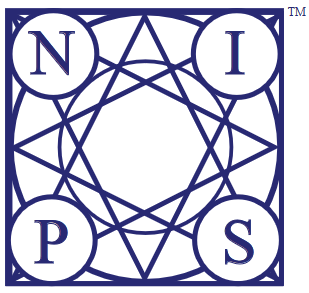
We invite competition proposals for the 2017 Neural Information Processing Systems 2017 conference in Long Beach, CA. NIPS has had traditionally a demonstration track with competition for best demo (also available for NIPS 2017). The call for competitions corresponds to a completely new NIPS track/special session.
We solicit competition proposals on any topic of interests to the NIPS community. We especially encourage competition proposals that are stemmed from emerging new fields or new application domains related to NIPS. Interdisciplinary topics that could attract a significant cross- section of the community are highly valued.
There will be two kinds of competitions:
Standard data science driven competitions, where participants will compete to obtain the best score on a machine learning problem of interest to the NIPS community based on a problem and data defined and released by the organizers of the competition.
Live competitions, which will be held in a science-fair manner at NIPS: Participants will present demos at NIPS which apply NIPS methodology in a particular application domain defined by the organizers of the Live competition.
There will be time slots during NIPS or the workshops where competition results can be discussed and presented. Organizers will propose a tentative schedule for the presentation of the competition and its results based on the assigned time slot. The main conference will provide coffee breaks and, if necessary, poster facilities. For any additional questions please contact the competition chairs.
Both competition organizers and participants will be invited to contribute with a book chapter for inclusion in the upcoming NIPS 2017 Competition book, within the Springer Series on Challenges in Machine Learning (pending acceptance, we have contacted Springer to arrange for proceedings).
DATA SCIENCE COMPETITION PROPOSAL SUBMISSION
Regular data science driven competition proposals must be sent to the competition chairs, with email subject “NIPS17 Competition Proposal: [title of your competition]”. Please carefully follow the available “CompNIPS2017” template to apply for the competition.
Live COMPETITION PROPOSAL SUBMISSION
Live competition proposals must be sent to the competition chairs, with email subject “NIPS17 Live Competition Proposal: [title of your competition]”. Please follow the available “LiveNIPS2017” template to apply for the Live competition. A very important requirement for the Live competition acceptance is the plan for recruiting participants.
Schedule
Competition proposal submission deadline
15th March, 2017
Acceptance notification
1st April, 2017
Book chapter submission from organizers and participants to the Springer Series on Challenges in Machine Learning: NIPS 2017 Competitions volume
15th January, 2018
Book chapter acceptance notification
15th March, 2018
Camera ready submission
15th April, 2018
Tentative publication of the book
1st July, 2018
ADDITIONAL COMMENTS TO COMPETITION PROPOSERS
In case your proposal contains a “regular data science” track and a “Live” track, please submit both available templates for revision. It may happen that only one of them is accepted.
Competition organizers should propose a timeline for running the competition to ensure participants to have enough time to contribute with a high quality solution. It is recommended the whole competition to be finished as late by the end of October, 2017.
Proposers with a competition proposal that may require help/suggestions regarding the competition platform to run the competition can contact the competition chairs for advice.
COMPETITION CHAIRS
Dr. Sergio Escalera, sergio.escalera.guerrero@gmail.com
Dr. Markus Weimer, markus@weimo.de
Filed in
Conferences
 Subscribe
Subscribe to Decision Science News by Email (one email per week, easy unsubscribe)
CALL FOR PAPERS: ASSOCIATION FOR CONSUMER RESEARCH (ACR) 2017 CONFERENCE
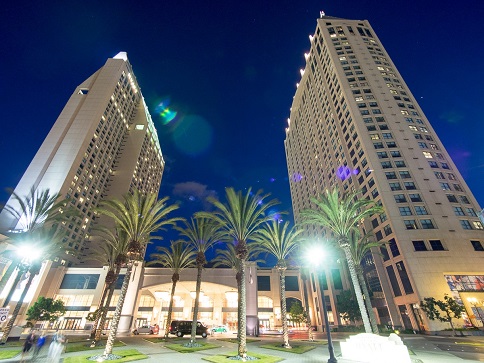
What: Association for Consumer Research North American Conference
When: October 26 – 29, 2017
Where: San Diego, California
Hotel: Manchester Grand Hyatt, 1 Market Pl, San Diego, CA 92101
Submission Deadline: March 10, 2017
Conference website: http://www.acrweb.org/acr/
Call for papers: Call for papers PDF
Conference email: acr2017@umn.edu
Map:
We are delighted to invite you to participate in the 2017 North American Conference of the Association for Consumer Research. We hope you can join us in San Diego, CA, from Thursday, October 26 through Sunday, October 29, 2017, for this exciting conference. Known as California’s “birthplace,” San Diego embodies Southern California culture and is known worldwide as one of the world’s best tourist destinations, year – round. With nearly perfect weather, 70 miles of beautiful coastline, more than 30 sandy beaches, golf courses and major attractions (such as the San Diego Zoo), there is something for everyone. The conference hotel, the Manchester Grand Hyatt, is located on San Diego Bay, and is steps away from the Gaslamp District, 16 – blocks of Victorian – era building s home to some of the City’s best restaurants, bars, clubs, theaters and galleries
CALL FOR PAPERS: SUBJECTIVE PROBABILITY, UTILITY AND DECISION MAKING (SPUDM)

Submission deadline: March 15th , 2017
The European Association for Decision Making invites submissions for presentations, posters and/or symposia for its 2017 Subjective Probability, Utility and Decision Making (SPUDM 26) Conference to be held at the Technion – the Israel Institute of Technology in Haifa, Israel, from Sunday August 20 to Thursday August 24, 2017.
All submissions must be made electronically.
Invited keynote speakers:
Alvin E. Roth, Stanford University, USA
Debora Estrin, Cornell Tech, USA
Ido Erev, Technion, Israel
Presidential Address by EADM president:
Andreas Glöckner, Göttingen University, Germany
The conference focus will combine traditional topics as well as new directions in Judgment and Decision Making research.
More details and submission guidelines are available on the conference website — https://spudm2017.net.technion.ac.il/call-for-papers/
For further assistance please contact the organizing committee at Spudm26@idc.ac.il<mailto:Spudm26@idc.ac.il>
We are looking forward to welcoming you in Haifa.
SPUDM 26 organizing committee:
* Shahar Ayal, IDC Herzelia
* David Budescu, Fordham University
* Ido Erev, Technion – Israel Institute of Technology
* Andreas Glöckner, Göttingen University
* Ilana Ritov, Hebrew University
* Shaul Shalvi, University of Amsterdam
* Richárd Szántó, Corvinus University of Budapest
2017 FABBS AWARD WINNER FROM THE SOCIETY FOR JUDGMENT AND DECISION MAKING
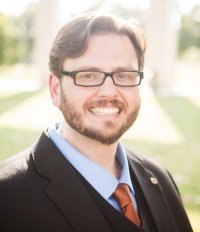
FABBS (Federation of Associations in Behavioral and Brain Sciences) just announced the 2017 Early Career Impact Award winners. This award is presented to early career scientists of FABBS member societies during the first 10 years post-PhD and recognizes scientists who have made major contributions to the sciences of mind, brain, and behavior. The goal is to enhance public visibility of these sciences and the particular research through the dissemination efforts of the FABBS in collaboration with the member societies and award winners.
For the Society for Judgment and Decision Making, the 2017 winner is Edward Cokely of the University of Oklahoma.
Dr. Edward Cokely has made significant advances in the psychology of skilled decision making, with applications in risk communication and adaptive technology. He is known for his research on cognitive abilities and inclusive decision education. In addition, Dr. Cokely’s research has advanced frontiers in our scientific understanding of simple, effective decision aids, visual aids, and training programs including adaptive computerized tutors to improve high-stakes decision making among diverse and vulnerable individuals who vary widely in ability, proficiency, education, background, and country of residence.
A passage from one of his papers shows his conviction that people, regardless of background, can improve their decision making ability:
For more than a century people have used theoretical assumptions to argue that general intelligence constrains decision making quality, causing substantial differences in human potential and outcomes…[with implications for] the structure of our policies, rights, institutions, and welfare practices. […] Setting aside moral and ethical outrage, at the heart of the scientific issue is a basic question about whether or not abilities actually constrain decision quality. [Our] experiments, training programs, and cognitive process tracing studies provide converging causal evidence [that] skilled decision making generally does not require high-levels of fluid intelligence or special abstract reasoning capacities… [With the right support] nearly anyone has the ability to make well-informed and skilled decisions so long as they understand risks.
In his writings, Dr. Cokely discusses how these findings present both research opportunities and substantial scientific responsibilities (for example, all else equal, informed decision making is an ethical imperative). This foundation serves as the scientific and ethical basis for his efforts to nurture risk literacy and support science for informed decision making.
In fewer than ten years after earning his PhD, Dr. Cokely has published over 60 papers which have been cited over 2,000 times. In the same time period, he has mentored 10 PhD students and secured more than $2,000,000 dollars in funding for research and student support. His research has been featured in Scientific American, New Scientist Magazine, Chronicle of Higher Education, and other media outlets such as the New York Times and Wall Street Journal Online. He’s received several major awards including a 2013 National Science Foundation CAREER Award and the APA’s Award for Best Research Paper in Applied Experimental Psychology (2012).
Dr. Cokely has developed the Berlin Numeracy Tests and associated outreach efforts via www.RiskLiteracy.org, a multinational collaborative informed decision making project. Today, more than 100,000 people from 166 countries have taken one of the Berlin Numeracy Tests. Hundreds of recent studies by research groups from business, psychology, economics, political science, law, medicine, social work, forestry, and other fields have published decision making research using the Berlin Numeracy Tests, improving our understanding of the needs and processes of diverse decision makers in more than 50 countries.
Dr. Cokely serves as Presidential Research Professor and Associate Professor of Psychology, and co-founding faculty of the National Institute for Risk & Resilience, at the University of Oklahoma and was previously a postdoctoral fellow at the Max Planck Institute for Human Development after earning his doctorate in psychology from Florida State University.
Filed in
Conferences
 Subscribe
Subscribe to Decision Science News by Email (one email per week, easy unsubscribe)
CALL FOR PAPERS

Following the success of the ECBE Conferences in 2015 and 2016 we are happy to announce that the 3rd Early-Career Behavioral Economics Conference will take place in Pittsburgh on the 16-17 of June, 2017. The conference will be sponsored by the Russell Sage Foundation and hosted by The Department of Social and Decision Sciences at Carnegie Mellon University (CMU).
The Russell Sage Foundation is the principal American foundation devoted exclusively to research in the social sciences and was an early force in the development of behavioral economics. For more information, visit www.russellsage.org.
Objective
The goal of this conference is to provide a platform for researchers who are at an early stage of their academic career to present their research and receive feedback from peer discussants. The conference seeks to promote the development of a community of early-career behavioral economics researchers. George Loewenstein (CMU) and Linda Babcock (CMU) will be keynote speakers.
Eligibility
Any early-career behavioral economist is invited to apply. This includes graduate students, Post-Doctoral researchers, and Assistant Professors who received their Ph.D. after Spring 2012. We will select 20 applicants to present papers, and 20 additional applicants to serve as discussants. We encourage applications from early-career researchers who have not participated in ECBE.
Costs
There is no conference fee. Conference meals will be covered for invited participants. In cases where financial assistance is not available from a researcher’s university, hotel and economy class travel expenses will be reimbursed for presenters and discussants (up to $1000 for travel from Europe and up to $350 for travel from North America except Pittsburgh). Please note that participants are not eligible for financial assistance if they received financial assistance from RSF for participating in the 2015 ECBE.
How to Apply
To apply, please follow this link
http://rady.qualtrics.com/SE/?SID=SV_7TYIIeuF8l9ghGB
and complete the application by January 31, 2017. After completing the online form, you will be asked to email a pdf document which contains (1) an abbreviated CV (max. 3 pages) and (2) the paper you wish to present to ecbe2017@gmail.com. Extended abstracts will not be considered. Please merge these files in the specified order into a single pdf that does not exceed 16 MB. If financial assistance is needed, please indicate this in the application form.
The organizing committee and external reviewers will review the submissions and select the participants in collaboration with Linda Babcock (CMU). Selected participants will be notified by the end of March. For more information, please contact ecbe2017@gmail.com or visit the conference website: https://sites.google.com/site/ecbeconference.
We look forward to receiving your applications.
Filed in
Jobs
 Subscribe
Subscribe to Decision Science News by Email (one email per week, easy unsubscribe)
BE A FELLOW WITH THE OFFICE OF EVALUATION SCIENCES
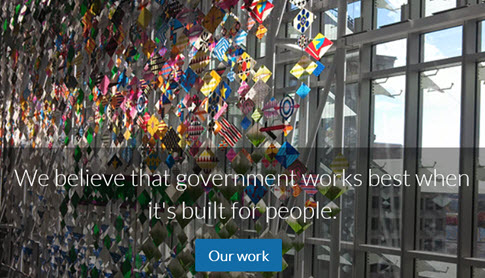
The Office of Evaluation Sciences (OES) is currently accepting applications for fellowships beginning in October 2017 in D.C. Based at the General Services Administration, OES is a team of applied researchers tasked with building insights from the social and behavioral sciences into federal programs, and testing and learning what works. OES partners with federal agencies to evaluate the effectiveness of new evidence-based interventions on program outcomes and provides agencies evidence to make informed programmatic decisions.
Over the past two years, OES has completed over 30 randomized evaluations with agency partners. OES has made major strides serving agencies and improving federal programs by applying and testing the impact of behavioral insights on a diverse range of agency outcomes. Dozens of agencies have joined this effort, creating innovative partnerships to tackle some of the most pressing challenges in the United States and abroad. OES has rigorously tested insights on diverse agency priorities such as promoting retirement security, responding to climate change, assisting job seekers, helping families get health coverage and stay healthy, and improving the effectiveness and efficiency of Government operations. For more information on our portfolio to date, go to https://oes.gsa.gov/work/.
Fellowship Details
OES is accepting applications for full-time fellowships starting in October 2017 based at the General Services Administration in Washington DC. Most Fellows join OES on-loan from academic, nonprofit, or government offices on either a reimbursable or non-reimbursable basis, typically for one to two years. Fellows have come from a variety of universities (e.g. City University of New York, Northeastern University, North Carolina State University, Reed College, University of Arizona, and University of Washington), non-profits (such as policy think tanks), and federal departments (e.g. Department of Education, Department of Agriculture, and Housing and Urban Development Department). Other types of federal appointments may be offered on a limited basis.
The OES team combines academic and research expertise with experience implementing and evaluating evidence-based interventions in complex settings. Responsibilities of OES Fellows include:
- Understanding agency objectives and priorities, identifying opportunities to translate findings from the social and behavioral sciences into concrete recommendations.
- Driving implementation on 3-5 projects at a time, including collaborating and communicating with agency partners to ensure that: intervention ideas and the pilot design meet agency goals; field experiments are implemented as planned; and the implications of results are clearly understood.
- Working directly with agency collaborators to design and rigorously test interventions.
- Performing data analyses and interpretation.
- Distilling findings into reports, policy memos, and academic publications.
- Assisting, as needed, on additional projects being managed by other team members.
- Attending weekly team meetings, providing updates on project status, and being generally available to collaborate on and contribute to internal team tasks.
- Representing the team by attending and presenting at internal government and external talks, conferences, and workshops.
Applicant Profile
OES team members must possess a unique set of technical and professional skills. This includes knowledge of at least one field within the social and behavioral sciences, the ability to creatively apply research knowledge within the federal government setting, the ability to design and manage the day-to- day operations of a large operational field trial, and exceptional communication and interpersonal skills
OES is currently recruiting for the following two roles with associated experience:
- Fellows have substantial expertise in the social and behavioral sciences field. Typically they are researchers with a PhD and publication record in a social or behavioral science field (e.g., economics, psychology, political science, statistics, sociology, public policy, business, etc.).
- Associate Fellows are typically pursuing a PhD in the social and behavioral sciences field, have recently completed a PhD or post-doc, or have a Master’s Degree plus two or more years of relevant experience.
Additionally, applicants must possess:
- General knowledge of applied social and behavioral sciences and specialized knowledge of at least one domain of study within the social and behavioral sciences.
- Ability to think creatively about how insights from the social and behavioral sciences can be translated into concrete interventions that are feasible within specific Federal programs.
- Curiosity and willingness to learn about federal agencies and their unique practical and regulatory constraints.
- Knowledge of evaluation design and analysis strategies, such as randomized controlled trials.
- Statistical competency in at least one data analytic programming language (e.g., R, Stata, Matlab, SAS, Python).
- Ability to effectively explain technical concepts to broad audiences, orally and in writing.Strong and concise writing skills, including under tight deadlines. Excellent project management and organizational skills.
- Flexibility, self-motivation, and the ability to manage multiple tasks efficiently in a team
Preferred qualifications include one or more of the following:
- Significant experience conducting randomized evaluations in field settings.
- Experience working with government programs, policies, operations, and/or data.
- Advanced statistical and data skills, including experience handling large data sets.
- Professional design skills (e.g. interaction design, visual communication design, etc.)
- Expertise in one or more U.S domestic policy sectors.
Application Details
Applicants may apply online via https://oes.gsa.gov/apply/. The deadline to submit is 11:59 p.m. EST Sunday, January 15, 2017. Finalists will be invited to an interview process that will include a writing exercise, up to two stages of interviews, and an in-person research presentation. We expect final decisions to be communicated to candidates by mid-March 2017.
Filed in
Conferences
 Subscribe
Subscribe to Decision Science News by Email (one email per week, easy unsubscribe)
DEADLINE JANUARY 9, 2017

The 55th Edwards Bayesian Research Conference will be held February 16-18, 2017, on the
campus of California State University, Fullerton.
Presentations at this conference may come from any area related to judgment and decision
making and are NOT limited to Bayes theorem or Bayesian statistics.
Submissions are due by January 9, 2017.
We maintain certain traditions that have made these meetings so enjoyable. As Ward Ed-
wards put it:
The atmosphere is informal, the discussion can get intense, and many of the best debates take place during coffee breaks or in the hospitality suite at the end of the day. This conference is a good place to try out your latest, wildest set of ideas on a kindly, knowledgeable, and critical audience.
Hotel rooms will be available at an excellent rate at the Fullerton Marriott, which is across the street from the meeting room.
Visit the conference website for more information.
Questions can be sent to Daniel Cavagnaro: dcavagnaro at fullerton.edu












